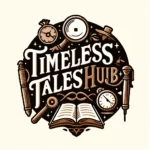Ah, “King John” by William Shakespeare! It’s one of those historical plays that doesn’t get as much attention as “Hamlet” or “Macbeth,” but it’s a hidden gem, teeming with political intrigue, family feuds, and delightful irony. Let’s dive into the juicy highlights of this lesser-known Shakespearean work, shall we?
A Reluctant King and the Quest for Legitimacy
First off, we have King John himself, a figure draped in the shadow of his more famous relatives like Richard the Lionheart. John’s reign is marked by his relentless struggle for legitimacy. He’s a king by default, not by right, and this inferiority complex drives much of the play’s drama. John’s questionable claim to the throne sets the stage for endless squabbles, manipulations, and a delightful display of medieval backstabbing.
The Ever-Ironic Bastard
Now, let’s talk about Philip the Bastard, one of Shakespeare’s most charming and cunning characters. Philip is the illegitimate son of Richard the Lionheart, and he steals the spotlight with his wit and bravado. He’s a delightful blend of loyalty and mischief, always ready with a sardonic quip or a clever plan. Philip’s commentary on the events around him provides a running critique of nobility and power, making him the play’s ironic voice.
Machinations and Mayhem
The play is a veritable chess game of political maneuvering. King John’s main adversaries are the French, led by the young and ambitious Prince Arthur, who has a more legitimate claim to the English throne. But the French aren’t the only problem. There’s also the ever-persistent threat of rebellion at home, not to mention the Pope, who excommunicates John, thus throwing religious tension into the mix.
The Battle of Political Wits
Shakespeare excels at depicting the cunning and conniving nature of politics, and “King John” is no exception. One memorable scene involves the negotiation for Arthur’s release, where promises and threats fly back and forth like arrows in battle. It’s a classic display of Shakespearean dialogue, where what’s said is as important as what’s left unsaid.
Women in the Shadows
The women in “King John” are fascinating in their own right. Constance, Arthur’s mother, is a force of nature, her grief and rage making her a powerful presence. She’s a stark contrast to the more composed and strategic Eleanor of Aquitaine, John’s mother. These women, though often in the background, wield significant influence, and their interactions add another layer of depth to the play.
War and Its Consequences
The themes of war and its futility are prominent. Battles are fought, alliances are made and broken, yet there’s a lingering sense of “what’s it all for?” King John’s reign is marked by constant conflict, but in the end, victory and defeat seem almost arbitrary. The play doesn’t glorify war; instead, it portrays it as a chaotic, destructive force that leaves ruin in its wake.
The Playful Tone of Irony
Shakespeare infuses “King John” with a playful tone of irony, particularly through the character of the Bastard. There’s a sense of the absurdity in the endless quest for power. The characters are often caught in their own webs of deceit and ambition, leading to situations that are as humorous as they are tragic. The Bastard’s reflections on nobility and honor cut through the pretensions of the other characters, highlighting the folly of their pursuits.

A Conclusion of Ambiguity
The play concludes on a note of ambiguity. King John dies, not in battle, but from poisoning, a rather inglorious end for a monarch. His son, Prince Henry, ascends to the throne, but there’s no grand resolution, no clear victor. The cyclical nature of power struggles and the uncertainty of leadership leave the audience pondering the true cost of ambition.
In Summary
“King John” is a rich tapestry of political intrigue, familial conflict, and ironic commentary. It’s a play where every character, from the cunning Bastard to the beleaguered king, adds a unique thread to the story. Shakespeare’s use of irony and his keen insight into human nature make this play a captivating exploration of the complexities of power and legitimacy. So, if you’re in the mood for a historical drama with a playful, ironic twist, “King John” is definitely worth the read!


